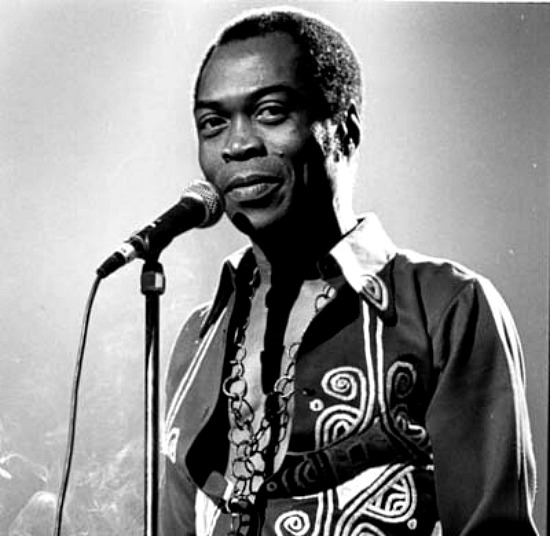Before there were hip-hop movement’s sprouting in the suburbs of Dakar, Senegal or charities launched by Nigerian rap stars, there were African musicians whose songs told stories of a different Africa.
From the 1960s into the early 1990s, it was Fela Kuti who called music ‘a weapon’ and Nigeria‘s military a troop of ‘zombies’ as he encouraged the country’s people to speak out against their corrupt government. Within the same time period, Miriam Makeba and Salif Keita used their platforms to bring awareness to cultural injustices in South Africa and Mali, respectively. They addressed issues plaguing the continent, and the impact of their lyrics can still be heard and felt today. As they continue to inspire younger musicians to use their platform for greater good, we look back at how some of Africa’s most socially conscious artists have positively impacted the continent and the world:
5. Salif Keita- MALI

Photo credit: VIXID Team, Flickr
Salif Keita knows what it feels like to be ostracized. Growing up, he was often excluded by his family and members of his village community because of his Albinism. When he began his music career in the late 1960s, Keita became a voice for the community, even dedicating his album La Différence to albinos around the world. Keita has also used his music for advocacy in other areas, bring awareness to HIV/AIDS through live performances and giving international audiences a taste of Africa with songs like, what else, “Africa.”
4. Youssou N’dour- SENEGAL

Photo Credit: Bob, Flickr
In 2012, musician Youssou N’dour placed his name in the pool of potential candidates for Senegal’s presidential race. Though his bid was unsuccessful, the move wasn’t unwarranted. N’dour, often called a modern griot, is a Grammy-award-winning storyteller who has sold out arenas and spent almost three decades making music centered around the idea of a ‘better Africa.’ As the recently appointed tourism and culture minister, he begins a new chapter of his work to improve Senegal.
3. Angélique Kidjo –BENIN

Photo credit: ActiveSteve, Flickr
In an interview with Amnesty International, Angélique Kidjo speaks on the conflict in Darfur and asks, “How can we talk about peace, when fundamental rights are not being respected?” The outspoken Grammy-award winning songstress has made a career of speaking on some of the continent’s most controversial topics and singing songs like “Leila” for international humanitarian efforts. Kidjo has worked with organizations like the Mo Ibrahim foundation and UNICEF to bring attention to health and education issues in Africa’s communities. As co-founder of the Batonga foundation, she now advocates for the increased access of education for girls around the world.
2. Mariam Makeba- SOUTH AFRICA

Photo credit: Dedica Festival, Flickr
She’s known popularly as “Mama Africa.” Mariam Makeba spent decades bringing awareness to some of the continents most pressing issues. She is one of few African artists to achieve success in the international market, a result of her relocation to the U.S. after speaking out against the country’s apartheid government and subsequently losing her citizenship in 1960. Makeba became widely popular under the management of American performer Harry Belafonte, and even after her death in 2008, the “Pata Pata” singer and activist is still remembered for her work fighting against HIV/AIDS and her contributions to the anti-apartheid movement.
1. Fela Kuti – NIGERIA

Fela Anikulapo Ransom Kuti is arguably Africa’s most globally recognized musician. Kuti was the self-named “black president” and creator of Afrobeat music. He believed in using music as a weapon, producing politically charged songs like “Zombie”—a compilation of controversial lyrics addressing corruption in Nigeria’s government laid over attractive saxophone and drum arrangements. His wild personal life, fleet of wives and privately owned village, named the Kalakuta republic, made him a legend. Unfortunately, this same lifestyle led to his death from AIDS in 1997. In the years following his untimely passing, Kuti’s music and activism continue to influence the continent’s socially conscious artists.
Credit: Africa.com


